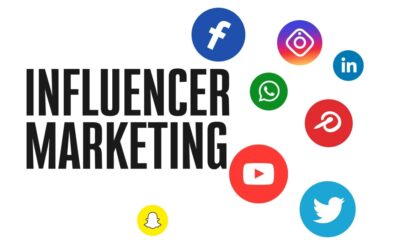Business
Why is Social Media So Important to Modern Marketing Strategies for Small Businesses?

Modern life exists in the digital age, and no large or small business can survive without social media. Social media has created new ways for companies to reach their target audiences: billions of users on Facebook, Instagram, LinkedIn, Twitter, and TikTok present significant prospects for brand exposure and sales growth. What began as a means of connecting individuals has since evolved into a significant part of the modern business marketing strategy.
Social media is a rapidly expanding aspect in the world of business marketing, and this article will look at how many businesses are using these sites in novel ways to increase brand visibility and reach out to their target audience in new ways.
Growth of Social Media in Business Marketing
The rapidity with which it occurred was primarily due to the real-time connectivity of people all around the world. Businesses quickly realized that using social media provided direct contact with customers rather than traditional modes of advertising such as television, radio, and print. This factor has unquestionably made social media one of the most important topics in modern marketing.
As per a Statista report published in 2023, over 4.89 billion people worldwide use social media. With so many users globally, businesses can engage with their clients, familiarize them with products, and research trends. Social media is now an important part of the marketing strategies of start-ups and large companies competing globally.
Brand Awareness and Identity Building
Among the numerous benefits of social media, one standout characteristic is its ability to significantly raise brand awareness. When a plan is properly implemented, businesses may introduce themselves to a new generation, enhance their identity, and differentiate themselves from their competitors.
Each social media platform allows the organization to showcase its unique brand voice, values, and personality. Companies that provide relevant and interesting content on a regular basis can establish themselves as leaders in the online world, generate resonance with their audience, and avoid being forgotten.
Real-Time Customer Engagement
Social media has offered a direct communication line between any business and its clients. Companies may collect feedback, answer inquiries, and solve problems in real time while also establishing a personal connection with their audience.
Businesses can be more welcoming to their customers by chatting, responding to comments, and even re-sharing user-generated content. The more committed a customer is to a brand, the more likely they are to recommend it to others.
Targeted Advertising and Audience Insights
These social networking services include advanced advertising systems. This will allow for the running of tailored advertising. This means that the organization will reach the appropriate audience using paid ads or promoted posts, regardless of age, location, interests, or online behavior.
Analytics on these platforms are straightforward and meaningful, providing information about how their campaigns succeed for their businesses. These data will also enable organizations to fine-tune and develop content based on a thorough grasp of client demands and preferences.
Influencer Marketing Power
Influencer marketing has emerged as a highly effective social media technique for brands. They are exposed to new audiences and receive endorsements from trusted advocates through partnerships with influencers–people with significant followings who enjoy the trust of their audiences and believe in their brand judgment. Influencers are frequently brand advocates; they promote products and services to their audiences, providing customers with a more relatable and authentic experience than traditional ads.
Brand Loyalty and Advocacy
Social media enables customers to become brand advocates. Loyal customers of any brand will engage and be willing to share positive experiences online by submitting reviews and recommending the brand to their friends and following. Encouraging organic advocacy benefits firms considerably since personal recommendations are far more credible than advertisements.
Customer Support and Crisis Management
It has also become an important platform for customer service. The company is now expected to reply to all requests and complaints received via social media right away. Companies who excel in such topics might transform a potentially negative experience into a favorable one, thus increasing their reputation.
Aside from that, social media is useful during crisis management; when a company experiences a public relations problem, social media allows the organization to communicate directly to its audience to the best of its abilities, with transparency about what issues the organization is attempting to resolve, thereby minimizing harm.
Social Commerce and Direct Sales
Social media platforms have evolved into marketing tools and markets where firms may sell directly to customers. Instagram Shopping, Facebook Marketplace, and Pinterest Buyable Pins enable businesses to convert social feeds into direct sales channels.
By making it simpler for consumers to discover, explore, and purchase products on the platform, this integration of social commerce aids in shortening the customer journey.
Information Usage for Personalization
The best thing about social media marketing is the assets with over-the-top information. Furthermore, the data is used in personalized marketing campaigns, which show people relevant ads. The benefit of personalization is that it improves both user experience and conversion rates.
Stay Relevant, Trendy, and Innovate
Every day, the social media landscape changes. Every day, new trends, features, and platforms come out. The business that adjusts quickly to answer such changes will continuously keep steady over the opposition. Brands that innovate on social platforms by utilizing their short video features, for example, have a better chance of actually gaining attention and standing out in a market where everyone is trying to attract the attention of others who may be tired of being treated as market segments and receiving so many messages.
Conclusion
Nowadays, businesses’ marketing strategies are increasingly dependent on social media. It gives brands the advantage in targeted advertising by providing audience insight and enables them to connect with customers and build a solid brand identity in real-time. There are several opportunities for firms to promote loyalty, create advocates, and even drive direct sales through features like social commerce on social media.
In light of this, innovation relative to trends, data-driven personalization, and influencer partnerships are the only strategies that can keep businesses relevant and competitive. Business groups should stay competitive by being agile and innovative notwithstanding a consistently moving landscape formed by social media platforms and trends.
-

 Business2 weeks ago
Business2 weeks agoRandy NG: Inside the Process of Managing End-to-End International Trade Operations
-

 Business3 weeks ago
Business3 weeks agoArdavon Moayer Explains How Discipline and Teamwork Translate to Sales Wins
-

 Tech2 weeks ago
Tech2 weeks agoFrontier Galvanizing: The Critical Role Of Galvanizing In Renewable Energy And Utility Projects
-

 Education4 weeks ago
Education4 weeks agoForged in Fire: Nicholas Lawless Unveils Lawless Leadership – The Model Built for a World That Traditional Leadership Can’t Survive
-

 Cryptocurrency3 weeks ago
Cryptocurrency3 weeks agoRami Beracha Asks, Can Israel Become A Global Leader In Blockchain Innovation?
-

 Business3 weeks ago
Business3 weeks agoOPO Group LTD Strengthens Its Global Footprint With Expanding Offices and a Modernized Trading Ecosystem
-

 Travel1 week ago
Travel1 week agoMichael Hopkins, Denver: Rethinking the Airport Experience for Modern Travelers
-

 Tech1 week ago
Tech1 week agoAI Won’t Replace Storytelling: Nathalie Kyriakou On The Human Side Of Marketing






















